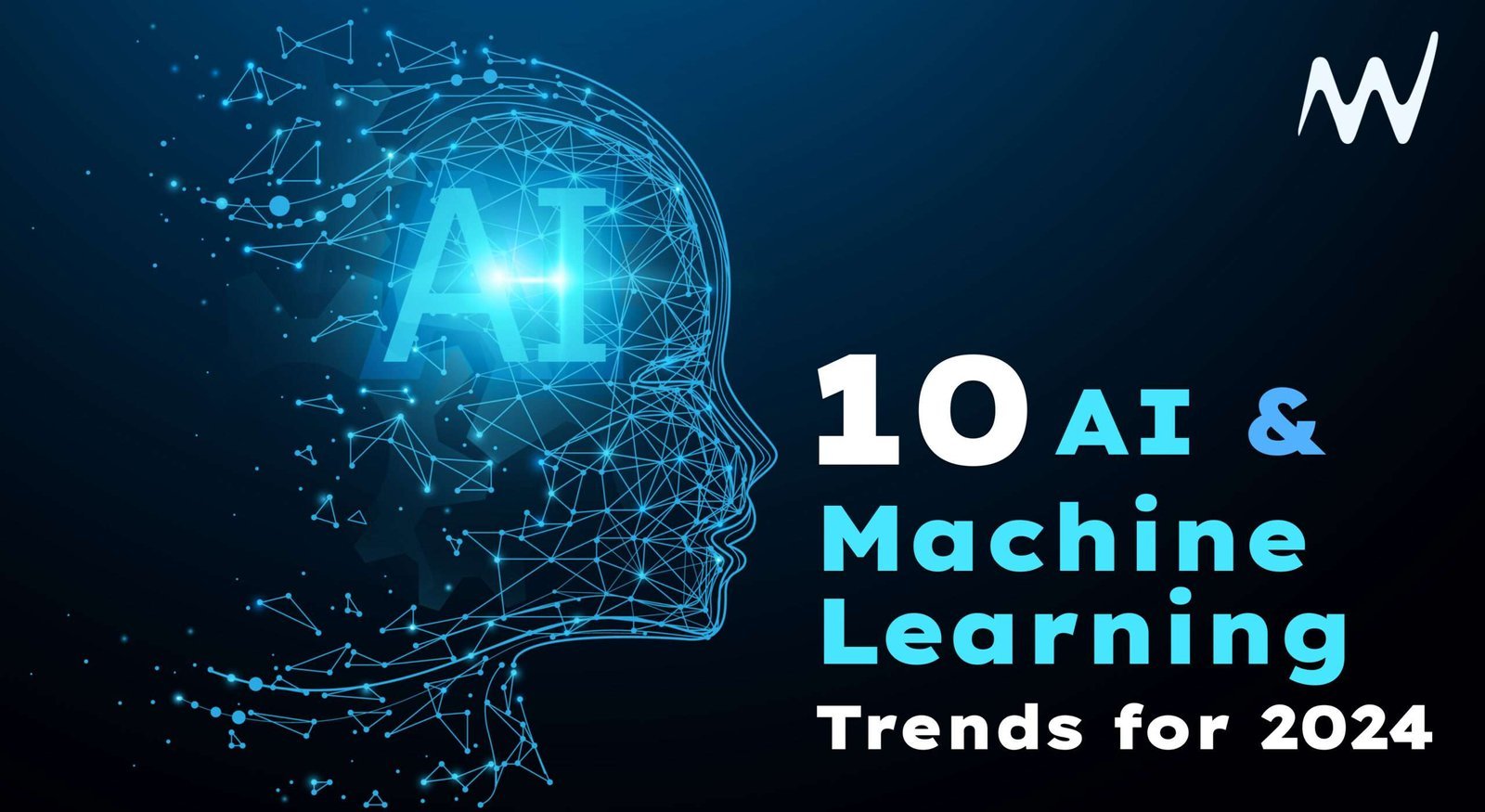Revealing Tomorrow: 10 AI and Machine Learning Trends for 2024

Introduction:
In the aftermath of ChatGPT’s introduction in November 2022, the AI landscape underwent a notable transformation throughout 2023, paving the way for significant advancements in the field. While generative AI remained a central focus, there emerged a discernible shift from experimental ventures to practical real-world applications. This shift reflected a more nuanced and cautious approach to AI development and deployment.
Top 10 AI and Machine Learning Trends for 2024:
- Multimodal AI:
Multimodal AI, integrating text, images, and sound, aims to replicate human sensory processing capabilities. It holds promise for diverse applications in fields like healthcare and job function expansion. - Agentic AI:
Representing a shift from reactive to proactive systems, Agentic AI empowers AI agents to autonomously set and achieve objectives. It has the potential to transform industries such as environmental monitoring and finance. - Open Source AI:
Open source AI initiatives democratize access to advanced AI tools, fostering transparency and innovation. However, they also raise concerns about misuse and maintenance challenges. - Retrieval-augmented Generation (RAG):
Addressing the issue of inaccuracies in generative AI outputs, RAG blends text generation with information retrieval, enhancing accuracy and relevance. - Customized Enterprise Generative AI Models:
Tailored to niche business requirements, these models offer improved privacy, security, and efficiency over generalized models. - Need for AI and Machine Learning Talent:
The demand for professionals skilled in AI programming, data analysis, and MLOps continues to grow, reflecting the increasing importance of AI across industries. - Shadow AI:
Unauthorized AI usage within organizations poses challenges regarding privacy and security, emphasizing the need for governance frameworks to balance innovation with risk management. - A Generative AI Reality Check:
Organizations grapple with the complexities of implementing and scaling generative AI, leading to a more realistic understanding of its limitations and requirements. - Heightened Focus on AI Ethics and Security Concerns:
Concerns about misinformation, manipulation, and security breaches underscore the importance of transparency, fairness, and ethical considerations in AI development and deployment. - Evolution of AI Regulation: With AI regulation evolving globally, organizations must remain adaptable to shifting compliance requirements. The EU’s groundbreaking AI Act, if enacted, could significantly impact standards worldwide.
Conclusion:
As we enter 2024, the AI landscape continues to evolve, with a focus on practical applications, ethical considerations. Embracing these trends and addressing associated challenges will be crucial for organizations seeking to harness the full potential of AI.
To learn more, talk to our experts today. Book your free consultation now!
You may also connect with us by mail at info@wrinom.com.
